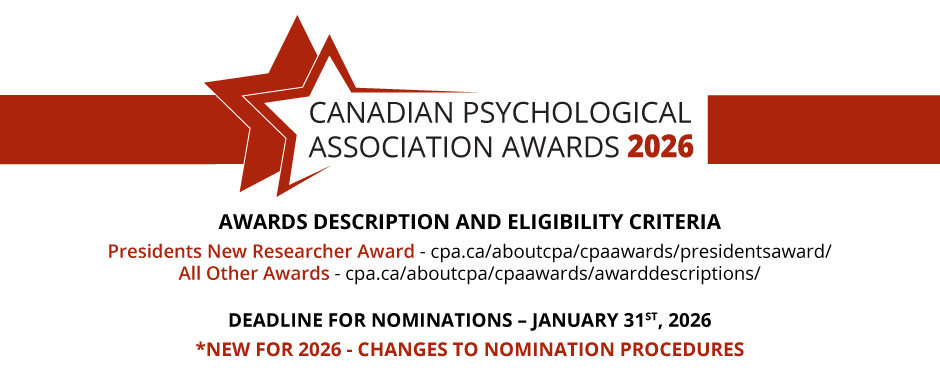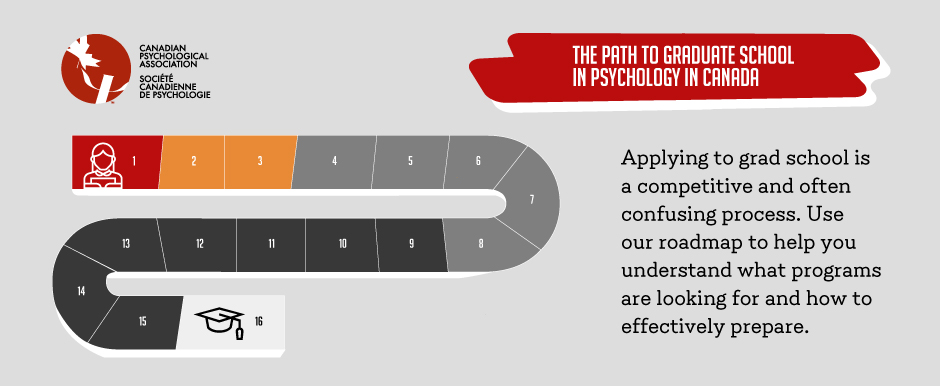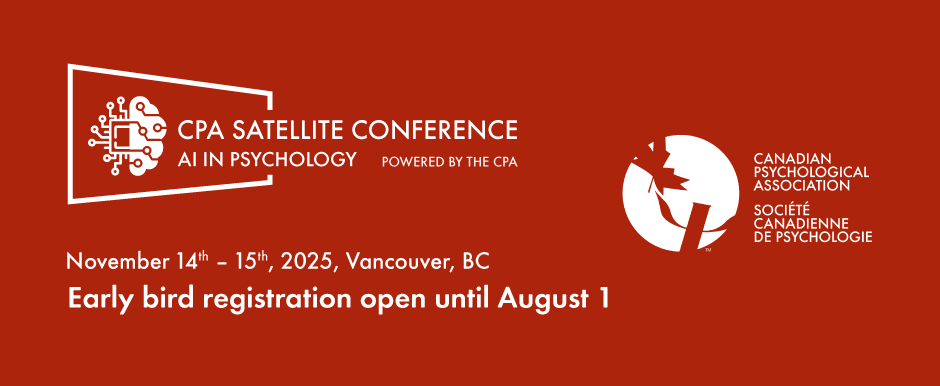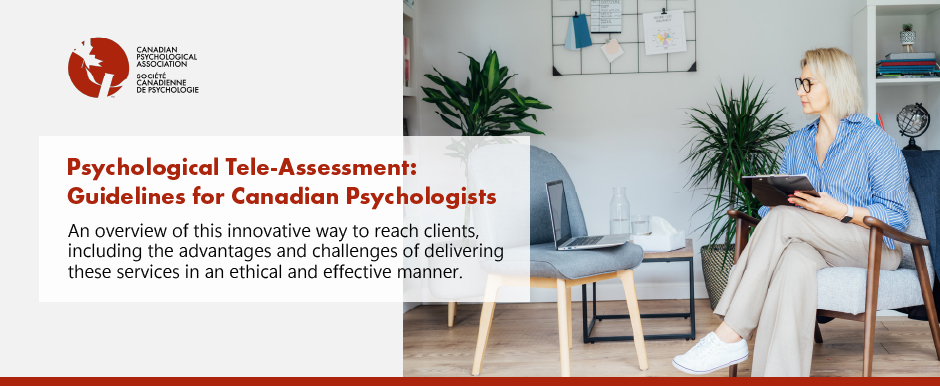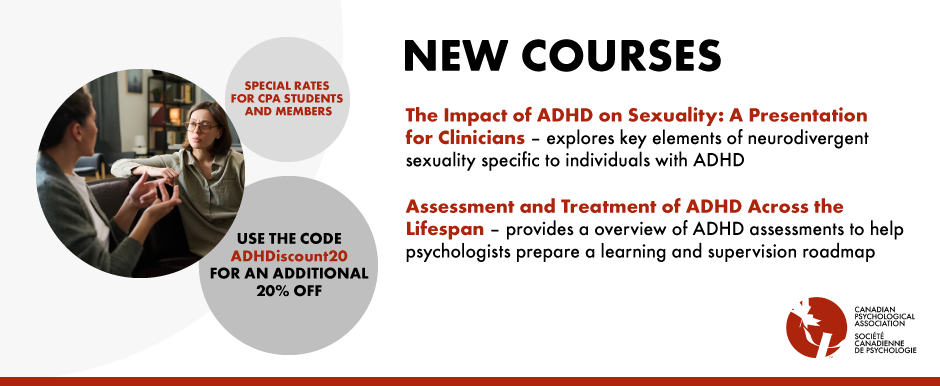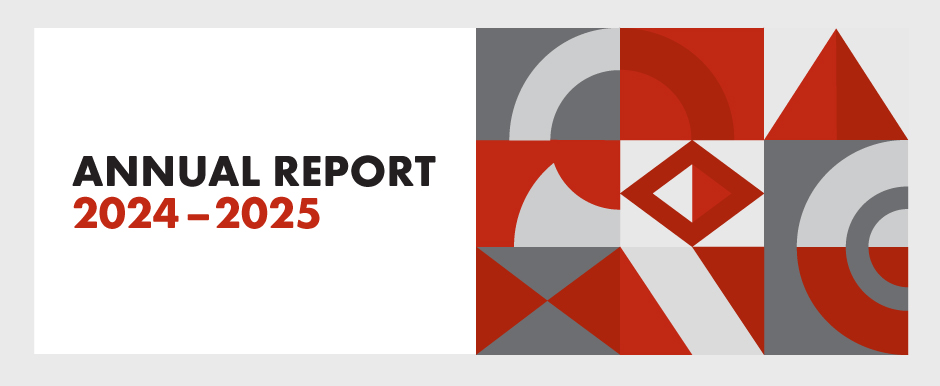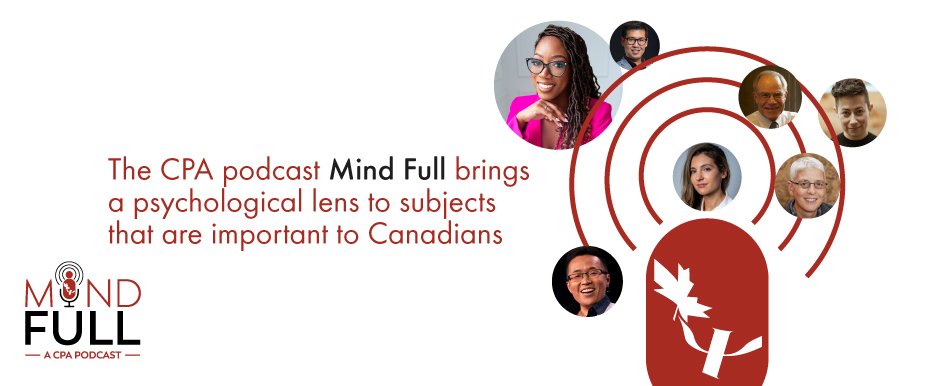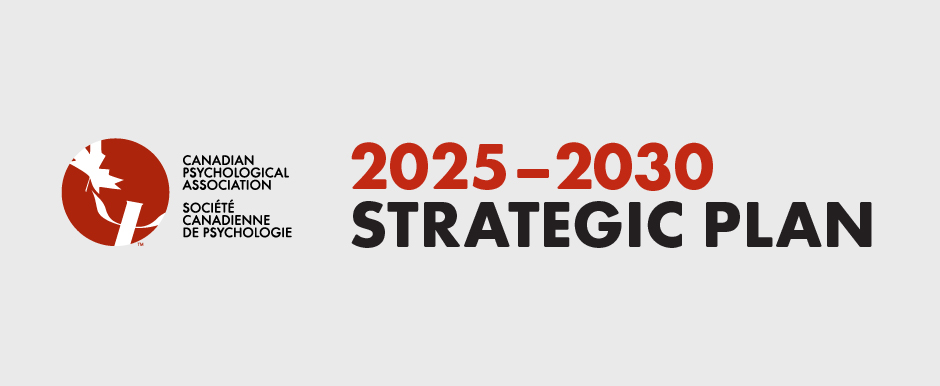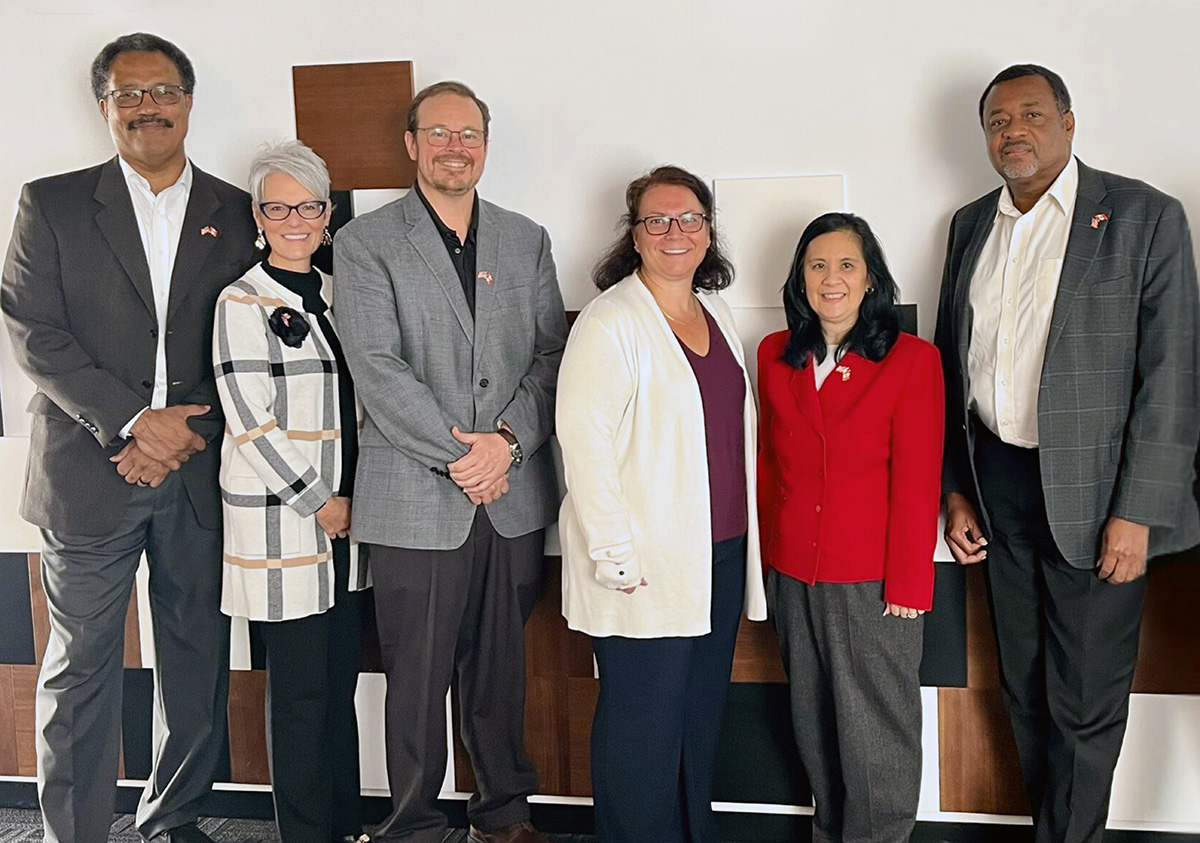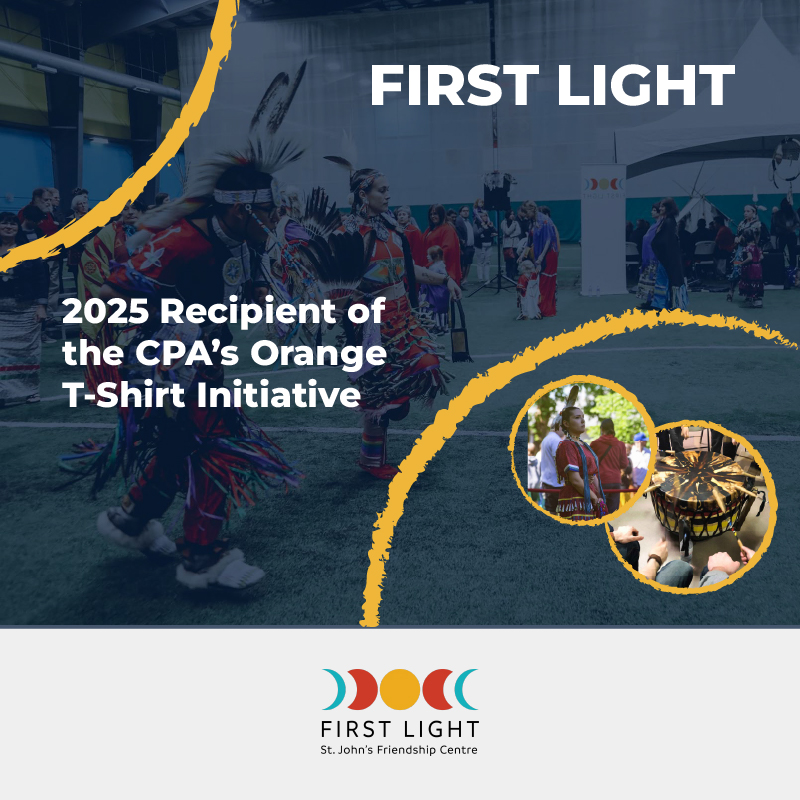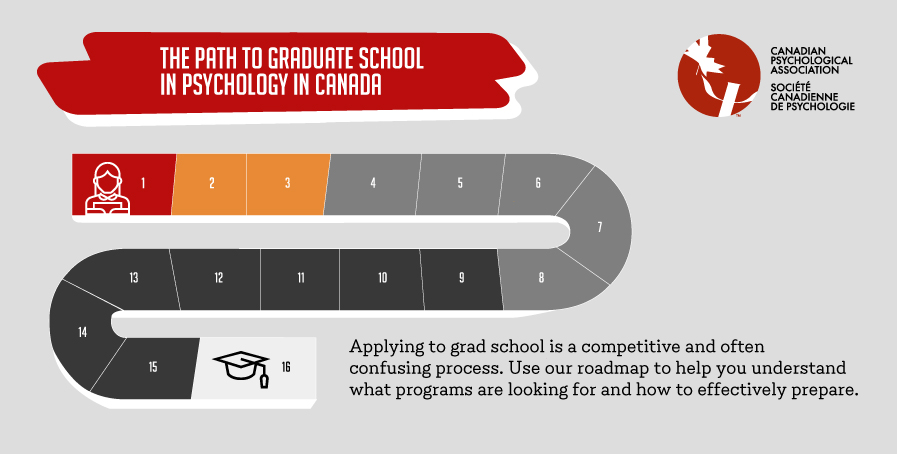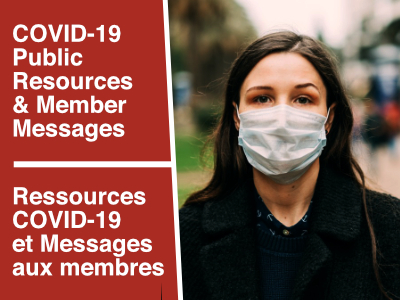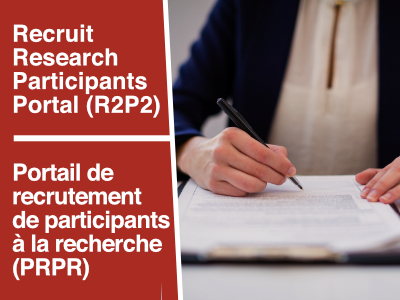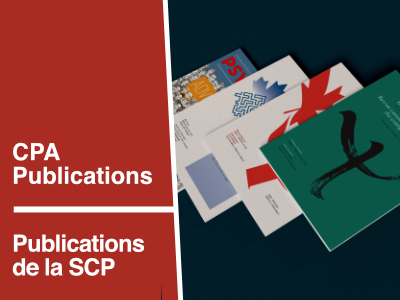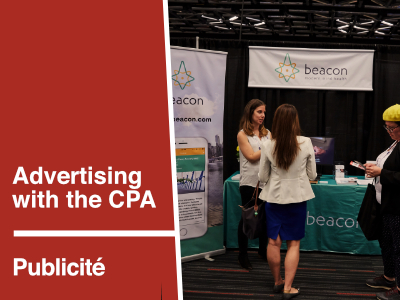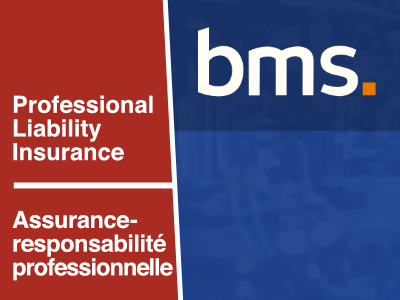Spotlight
2025 Virtual Career Fair: Registration Open
The CPA, in collaboration with the Canadian Society for Brain, Behaviour and Cognitive Science (CSBBCS), will be hosting its sixth annual Virtual Career Fair on Wednesday, December 10th, 2025, from 12-3pm EST.
By participating in this event, you will learn about various career paths and positions for psychology graduates outside of the health services and academic settings directly from individuals in those positions. You also will have the opportunity to connect with these individuals via virtual breakout rooms where you can ask them about their experience, advice, or anything relevant to your job search!
Click here to REGISTER and here for more INFORMATION.
2025 Virtual Career Fair Flyer

ASPPB, APA, and CPA Convene at North American Psychology Leadership Summit

The Association of State and Provincial Psychology Boards (ASPPB), the American Psychological Association (APA), and the Canadian Psychological Association (CPA) met at a trilateral leadership summit in Toronto on October 9, 2025, to examine the shared challenges and emerging opportunities shaping the future of professional psychology across North America.Read the Joint Statement (PDF)
Mind Full, a CPA Podcast: Correspondence with killers – in conversation with Jeffrey Smalldon

Forensic psychologist Jeffrey Smalldon spent decades corresponding, conversing, and probing the minds of some of America’s most notorious killers, from John Wayne Gacy to the Manson family. On this week’s Mind Full podcast, Eric converses and probes the mind of Jeffrey Smalldon. Why are we, as a society, so fascinated with history’s most violent and depraved acts and events? Are Canadians different from Americans in our fascination with such horror?
First Light

The recipient of a donation from the CPA’s Orange T-shirt sales at our 2025 convention is First Light, an Indigenous-led organization in St. John’s, Newfoundland. First Light has seven locations in St. John’s that assist urban Indigenous and non-Indigenous people who are experiencing homelessness, mental health issues, and who require supports in the St. John’s area.
CPA/OPA joint letter to Ontario College of Psychologists and Behavioural Analysts re: proposed regulatory changes in Ontario
New Booklets Released – Phonological Awareness Activities for the Kindergarten-Age Child
The CPA is pleased to announce the release of two research-based booklets designed to help kindergarten children with phonological awareness.
These booklets were created in response to recent endorsements of kindergarten reading programs that emphasize the phonics approach over the whole-language approach. The first booklet, titled, Promoting Reading Success: A Teacher’s Guide to Phonological Awareness Activities for the Kindergarten Child, is intended for use by teachers and can be purchased on the Publications page of the CPA website. The booklet is available in both English and French. To learn more about this booklet, you can read the Preface here. The second booklet, titled, Promoting Reading Readiness: A Parent/Caregiver’s Guide to Phonological Awareness Activities for the Kindergarten-Age Child, is intended for use by parents and caregivers, and can be downloaded for free by clicking here – you also can find the link to this booklet on the Publications page of the CPA website.
If you know of any teachers, parents, or caregivers who may benefit from these booklets, please share this information with them.
The Path to Graduate School In Psychology In Canada
Psynopsis Vol.47, Issue 2 now available online
CPAP Group Benefits Survey
The Council of Professional Associations of Psychology (CPAP), in collaboration with the Canadian Psychological Association (CPA), is seeking input on a potential group benefits plan for psychologists.
We ask that you please complete the brief survey below which asks whether you’re interested in a group benefits plan and if so, the coverage and features you would like offered/implemented.
English – https://web2.cpa.ca/membersurveys/index.php/415456?lang=en
French – https://web2.cpa.ca/membersurveys/index.php/415456?lang=fr
Thank you for taking the time to complete this survey.
New “Psychology Works” Fact Sheets
The CPA’s Scientific Affairs Committee is Seeking New Members!
The Canadian Psychological Association’s Scientific Affairs Committee (SAC) is currently recruiting new members. The SAC’s primary aim is to advance psychological science by working on matters of importance to the psychological research community, CPA members and affiliates, and groups of researchers. It is also responsible for the policies and practices of the CPA’s journals and other publications.
Yearly activities of SAC members include reviewing student research grant applications, providing input on CPA journal matters (e.g., publishing agreements, open-access wording, publishing standards), and reviewing special issue proposals for the journals. Additional activities will come up throughout the term. For more information on the SAC, or to read the SAC Terms of Reference, click here.
If you are interested in joining the important work of the SAC, please send a letter of intent and updated CV to Dr. Lauren Thompson, CPA’s Science Director at science@cpa.ca. In your letter of intent, please specify whether your research falls primarily within the mandate of SSHRC, NSERC, or CIHR.
CPA’s 2025-2030 Strategic Plan
It is with great pleasure that the CPA’s Board of Directors releases the CPA’s 2025-2030 Strategic Plan.
The CPA’s Board wishes to thank all members, affiliates, and associates who took the time, whether as individuals or as part of a collective, to provide input as part of our open consultation and call for feedback. With the new Strategic Plan, we have refreshed the CPA’s Vision, Mission, and Strategic Priorities. More…
Psychological Tele-Assessment: Guidelines for Canadian Psychologists
On December 17th, 2024, the CPA’s Board of Directors approved the Psychological Tele-Assessment: Guidelines for Canadian Psychologists.
For more information, or to download a copy of the guidelines, click here. (PDF)
2025 CPA Student Research Grant Winners Announced
The CPA is pleased to announce the winners of the 2025 CPA Student Research Grants. These grants recognize exceptional student research in all areas of psychology. This year, grants were provided by the CPA, jointly by the CPA and CSBBCS, and by BMS Canada.
Congratulations to all!
2025 Section Newsletter Award Winner

The Student Section is the winner of the CPA Section Newsletter Award for their Fall 2024 newsletter (PDF).
version francais (PDF)The CPA recognizes the efforts that the Sections put into creating and maintaining their newsletters. Section newsletters serve as an important communication tool to help keep members informed and involved in the Section and in CPA.
Featured Activities and Products
-

COVID-19 Public Resources & Member Messages
Read more -

CPA Career Hub
Read more -

Recruit Research Participants Portal (R2P2)
Read more -

CPA Publications
Read more -

Advertising with the CPA
Read more -

Career Advertising
Read more -

Continuing Professional Development Online Courses
Read more -

Advertise in Psynopsis
Read more -

Professional Liability Insurance
Read more


